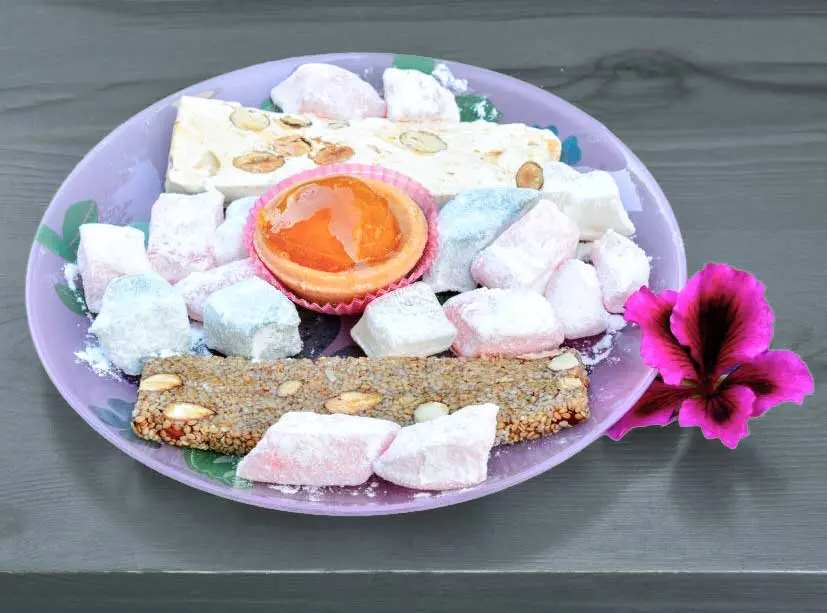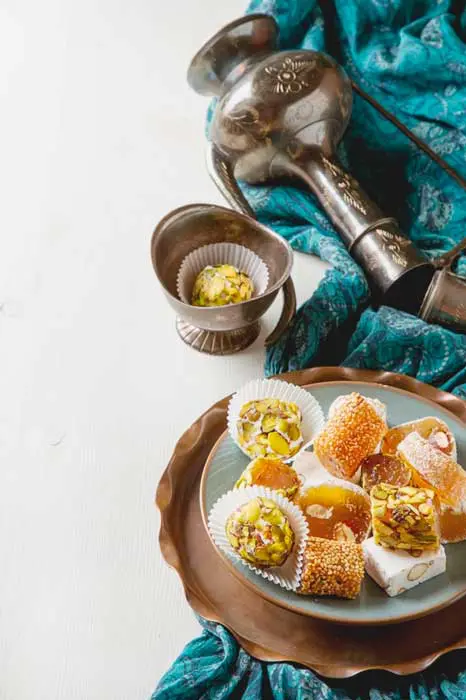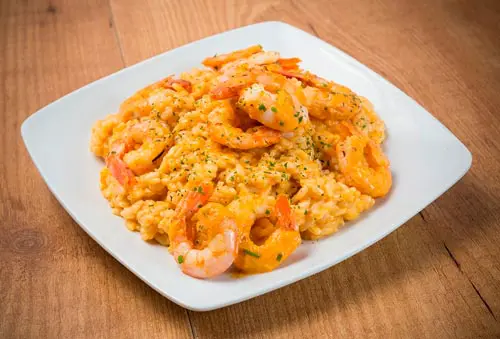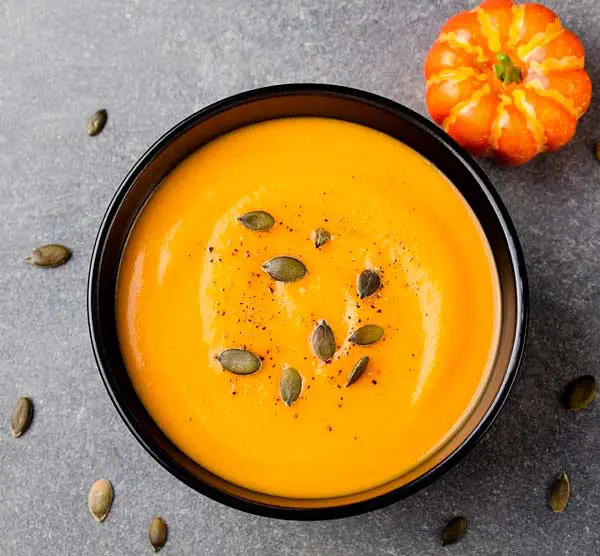Adimu or Adimuses: Offerings to the Orishas in Santeria
Entertaining the Yoruba saints (Orishas) in America, there is no doubt, that it was a challenge for the African taken from their lands, refused to allow the death of their customs. The need for adaptation, the limited availability of food resources supplied by their slave captors, and the absence of ingredients typical of their land, forced Africans in the new world to adapt their cuisine and entertain their Saints, without forgetting anywhere moment their principles and fundamental objective: to make the appropriate sacrifices to have the blessings of their deities, finally, their faith was the only thing that could not be taken from them.

What are the adimuses (Adimu) for the saints?
Adimuses can be made up of: fruits, flowers, candles, cigars, any food regardless of its nature, as long as it does not constitute a taboo for the spirituality to which it is intended to offer. However, this time we will concentrate on those special preparations with which santeros and devotees, we strive to pamper our Orishas in particular.
It should be noted that to make these preparations it is best to be accompanied by an initiate in Santeria, who knows the tastes and prohibitions of the saint who we are going to entertain, as well as the use of utensils and other elements that participate in the elaboration. Let us remember that the performance of the Yoruba religion is accompanied by great mysticism and solemnity.
Each Adimu (Offering) must be placed in front of the Orisha on a mat, with a neat presentation. Using to serve them: white earthenware or earthenware dishes. The recipes must be prepared at home, they must never be bought ready-made, since their preparation constitutes a ritual in itself, it is most advisable that it be executed by the hands of the person who will perform the respective Ebo, in such a way that while carry out its elaboration, stay in deep meditation praying and asking the Saint that his offerings be well received and his prayers listened to, in order to materialize his requests as soon as possible.
Our ancestral heritage tells us that women prepared to cook for the saints with extreme mystique and devotion. The "Santo's Kitchen" was a sacred place, especially used for this purpose. When they got there, they put on their bare feet and covered their heads with a gèle (female scarf), maintaining total solemnity throughout the process.
Cooking tasks were an inherent task for women within the Yoruba customs, but, in the eyes of the Orishas, both men and women can cook for them without any type of restriction, considering that after their initiation when obtaining the first title Religious known as: "iyawo" means that the initiate has married the Orisha, immediately assuming attributions such as attending to him, being faithful to him and respecting him, among other considerations, as is established in that culture that wives would.

Utensils used in the kitchen for the Orishas in Santeria
With regard to the utensils used, it is very common to use: wooden spoons or wooden pallets, graters, knives, pans, clay pots, clay pots and plates, roasters, strainers, mortars, mincer, grinder, grills, gourds or totumas and white plates.
Food that is offered to you as Adimu in Santeria
In relation to the foods that are offered to the Santos Yorubas we can find a great variety of fruits, cereals and their derivatives, the most used are: sweet potatoes, sweet potatoes, onions, peppers, chili peppers, spices of all kinds such as cinnamon, cloves, walnuts butternut, sweet anise, ginger, vanilla; oregano, bay leaf, fennel, mint, rosemary, peanut, garlic, coriander, parsley; cassava, yams, black, red, white, face beans; butter, white and yellow porridge, corn of all its colors, common corn, corn flour, cassava flour; cornstarch, pisingallo corn (from making rosettes, popcorn or popcorn); wheat porridge, wheat flour; lettuce, tomatoes, spinach, cabbage, chard, cabbage; quiabo or quimbonbo; shea butter or cocoa butter; common oil, palm oil; ground pepper, guinea pepper; milk, cocoa, rice; sugar (white and brown); saffron; bananas, apples, oranges, coconuts (all kinds of fruits in general) and many more.
Great variety of meats and species of the sea such as: shrimp, various fish, prawns, crabs, turtle, squid, snails, oysters, clams, mussels, octopus; beef, veal, goat, goat, lamb, mutton, sheep, piglet, cock, chicken, pigeon, turkey, duck, goose; rabbit; apereá or cuí or coipú, jutía (South American substitutes for the African rat).
In addition to adding its fundamental ingredients such as: husk, cocoa butter, salt, honey, cane molasses, brandy, wines, among many others.
You can read: The board ebbo
Types of Adimu (Adimuses):
Aladimu:
A particular case of ADIMU, it is a very large ADIMU, which is covered with Ashó of the color of the Saint to which it is offered.
Ebo Shure:
They are Adimuses in small quantities, united they are put to a determined Osha to distribute them among the others, to win their favor. Depending on who makes the sacrifice or offering, it cannot lack coconut, jutía and smoked fish, corojo butter, ekó, fruits, blood and it is requested in the Atepon Ifá (Ifa Board), if it is Babalawo.
Ebbo keun odun keun.
It is an Ebbo Shure type Adimu, but the offerings are placed directly to each Osha, beginning with ELEGBA and ending with the Guardian Angel of the person.
In each case, each Saint is given coconut and asked for number of days.
Kafesi yeni yeni odun (It means number of days).

Prayer or Prayer to put adimu or Offering to the Orishas
Oyu ile lasheda ladimu ota lasheru
Bowa ladimu bi ebo
Keleyeri.
(We are in your presence, putting you in the presence of sacrifice, if you do not accept it, the earth will be a witness)
I pray to put the ebbo shure and the ebo keun odun keun:
EBBO KEUN ODUN KEUN
EBO SHURE BOGBO OSHA ALAWE
(A little today, a little tomorrow, this sacrifice is for the good and covers all the Saints)
NOTE: When any of these OKANA offerings, the first thing you ask is SUYERE LOWO LADIMU.
That is, if the Adimu is sung. If he says yes, whatever Osha is sung to, at least three songs.
Offerings or Adimu for Elegua
Akará for Elegua:
This traditional dish of African cuisine is highly esteemed by Elegua. It consists of making a bun made with face beans and previously cooked shrimp, seasoned with: onions, chili peppers, peppers, garlic, salt and pepper. When the dough is ready, some small tortillas are made that are then fried in palm oil. Once they cool, they are presented to Elegua on a clay plate decorated to your liking, in the quantity of 3, 7 or multiples of 7.
Guava Sweet for Elegua:
This fruit is highly appreciated by Elegua, it can be offered naturally always before ripening, or also pieces of guavas in syrup, hulls, sweets, jellies and any of their presentations.
Food or Adimu for Oggun
Calalú for Ogún:
A broth is made with pieces of beef and pumpkin. In a satin with palm oil, fry: pieces of banana, garlic, onions, tomatoes; in the company of chard, pigweed, collard greens, spinach, yucca leaf sprouts and finely chopped sweet potato leaf sprouts; add: oregano, bay leaf, cumin, salt and pepper to taste. When the sauce is cooked, mix it with the hot broth and cook over medium heat until it boils. Serve it to Ogun in an earthenware meal garnished with finely chopped chard.
Food or adimu for Oshosi
Sweet gofio balls for Ochosi:
Mix gofio powder, sugar, cinnamon powder and a pinch of salt, infused with star anise until you get a smooth and manageable dough. Make 7 balls of the size you like, place them in a pot with boiling water until they are perfectly cooked. Prepare a syrup by placing the same amount of infusion of star anise and sugar in a saucepan over low heat and add 4 cloves of spices, 1 cinnamon stick, a pinch of nutmeg and cook until it is on the brink. Finally, present the gofio balls to Oshosi on a clay plate, adding the honey on top and garnishing them with sweet anise and birdseed.
Food or adimú for Orumila
Rice with shrimp for Orula:
The cleaned and peeled shrimp are fried in corojo butter, accompanied by 3 cloves of garlic, parsley, basil, onion, peppers and chopped tomatoes. Then raw rice is added and double its amount of water. Cook over medium heat until the liquid dries. Then it is covered and left over low heat until completely cooked. The Orisha is presented on a white plate decorated with fried shrimp on top, finely chopped cilantro and a basil leaf.

Food or adimú for Obatala
Rice pudding for Obatala:
This is one of the favorite adimuses of Obatala. The rice is boiled in a pot with milk, orange peel, cinnamon and a pinch of salt. Cook over low heat until the rice is tender and smooth, periodically checking the process and stirring occasionally, increasing the frequency while increasing the cooking time. When cooked, add condensed milk, vanilla and ground cinnamon, stir well, and remove from heat. It can be presented to the Orisha as you like, sprinkle a little cinnamon, husk and grated cocoa butter on top before offering it to Baba, don't forget.

Food or adimú for babalú ayé
Rice with quimbonbó for San Lázaro:
It is put to fry in okra corojo butter, chopped into large pieces, you can also add pieces of goat meat, in the company of 3 cloves of garlic, parsley, basil, mint, mint, onion, peppers and chopped tomatoes. Then raw rice is added and double its amount of water. Cook over medium heat until the liquid dries, then cover and leave on low heat until completely cooked. The Orisha is presented on a white plate decorated with fried okra slices on top and basil leaves.
Food or adimú for oya
Charcoal aubergines for Oya:
On the grill, place pieces of chopped aubergines to your liking, constantly checking them until they are perfectly cooked and avoiding burning. Then the cooked pieces are seasoned with oil, vinegar, oregano, salt and pepper. It is presented before the Oricha on a clay plate decorated with fine parsley branches.

Food or Adimu for Oshun
Pumpkin cream for Oshun:
Place the chopped and peeled pieces of pumpkin in a pot with water in the company of a pinch of salt and a cinnamon stick, make a puree when cooked. Then mix with half a liter of milk, two cups of sugar, a new cinnamon stick and three egg yellows, cook over low heat, stirring constantly with a wooden spoon until it boils. Let stand and add honey and cinnamon powder to your liking, place it in the container in which you are going to present it and put it in the fridge until it is firm and creamy. Present it to Oshun with some honey, cinnamon powder and a cinnamon stick on top for garnish.

Food or adimú for the jimaguas
Chicken rice for the Jimaguas:
Chicken pieces are fried in corojo butter in the company of 3 cloves of garlic, parsley, onion, peppers, chili, chives and chopped tomatoes. Then raw rice is added and double its amount of water. Cook over medium heat until the liquid dries and then cover, leave on a low flame until completely cooked. It is offered to the jimaguas in a white box garnished with finely chopped parsley on top.
Food or adimú for agayú
Banana ribs and balls for Aggayú:
It is put to fry in corojo butter pieces of beef ribs in the company of garlic, parsley, onion, peppers, chili, chives and chopped tomatoes in large pieces, salt and pepper are added to taste, left over medium heat until is perfectly cooked. In addition, green plantains without shells are cooked in boiling water, when they finish their cooking process they are left to rest and then a malleable dough is made, forming 9 balls that will be fried in corojo oil. Finally, the meat is presented to Agallú in a clay lunch box with the fried banana balls on top.
Food or adimú for Yemaya
Ladybugs and beans for Yemaya:
Chunks of pork are sautéed until perfectly cooked. In the same way, green banana slices are fried. Black beans are placed in boiling water with a pinch of salt and pepper until they are completely cooked. Then, the pork and beans are placed in a deep frying pan with hot corojo butter and finely chopped garlic, parsley and chives are added, large pieces of: onion, peppers, chili, tomatoes, salt and pepper to taste. It is stirred for a few minutes, waiting for the flavors to permeate the ingredients and it is served in front of yemaya in a clay pot garnished with maraquitas (fried plantains).
Food or adimu for olokun
Gofio balls with melao for Olokun:
Mix gofio powder with water until you get a smooth and manageable dough. Make 9 balls of the size you like, place them in a pot with boiling water until they are perfectly cooked. Prepare a simple syrup by placing the same amount of water and sugar in a saucepan over low heat and add cane molasses, 7 spice cloves, cinnamon stick, a pinch of nutmeg, cook until it is on the verge of thread. Finally, serve the gofio balls with the Olokum foot in a clay plate, adding the honey on top and garnishing with some spices.
Food or adimú for Shango
Amala ila for Shango:
This is one of the favorite adimuses of Shango. In a deep frying pan, sauté okra cut into thin wheels, garlic, parsley, onion, peppers, chili, chives, chopped tomatoes, salt and pepper to taste. Then the resulting mixture of water, cornmeal and corojo is added (this mixture must be liquid with a little thickness). Over low heat, stir constantly with a wooden paddle until it is perfectly cooked. In the case that the dough dries and is still raw, you can add a little water and a little corojo without stopping stirring. Once ready, it is placed in a large gourd or clay pot, garnished with 6 whole okra and immediately presented to Shango as hot as possible.
History: ADI and IMU, the children of YEMAYA.
Legend has it that one day Olofin was very angry about things that were happening on Earth and withdrew his protection and protection from human beings.
Things began to go badly on Earth and all the Saints tried again to obtain the blessing, that is, the benevolence of Olodumare towards men. But all the sacrifices and offerings they made to him, none had the virtue of moving Olodumare.
Yemaya (Goddess of the Sea) had two children, ADI and IMU (YEMAYA's breasts), who were very dear to her and represented all her fulfillment in life. But, concerned for the destinies of humanity, for her feelings and natural instincts as the mother of the world, she offered Olodumare the head of her children in exchange for him forgiving the rest of the men of Earth.
Thus Yemaya offered her children ADI and IMU, to save humanity and to return Olofin's benevolence and blessing. The latter, moved by such a deep maternal gesture, forgave the men of Earth and said: ADI and IMU is the greatest offering, the most beautiful, the most disinterested I have received. Adimu will be the greatest thing they can offer me and the other Orishas.
You can read:









